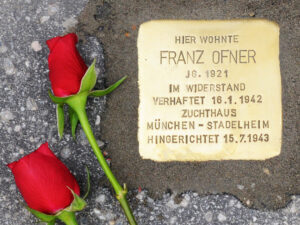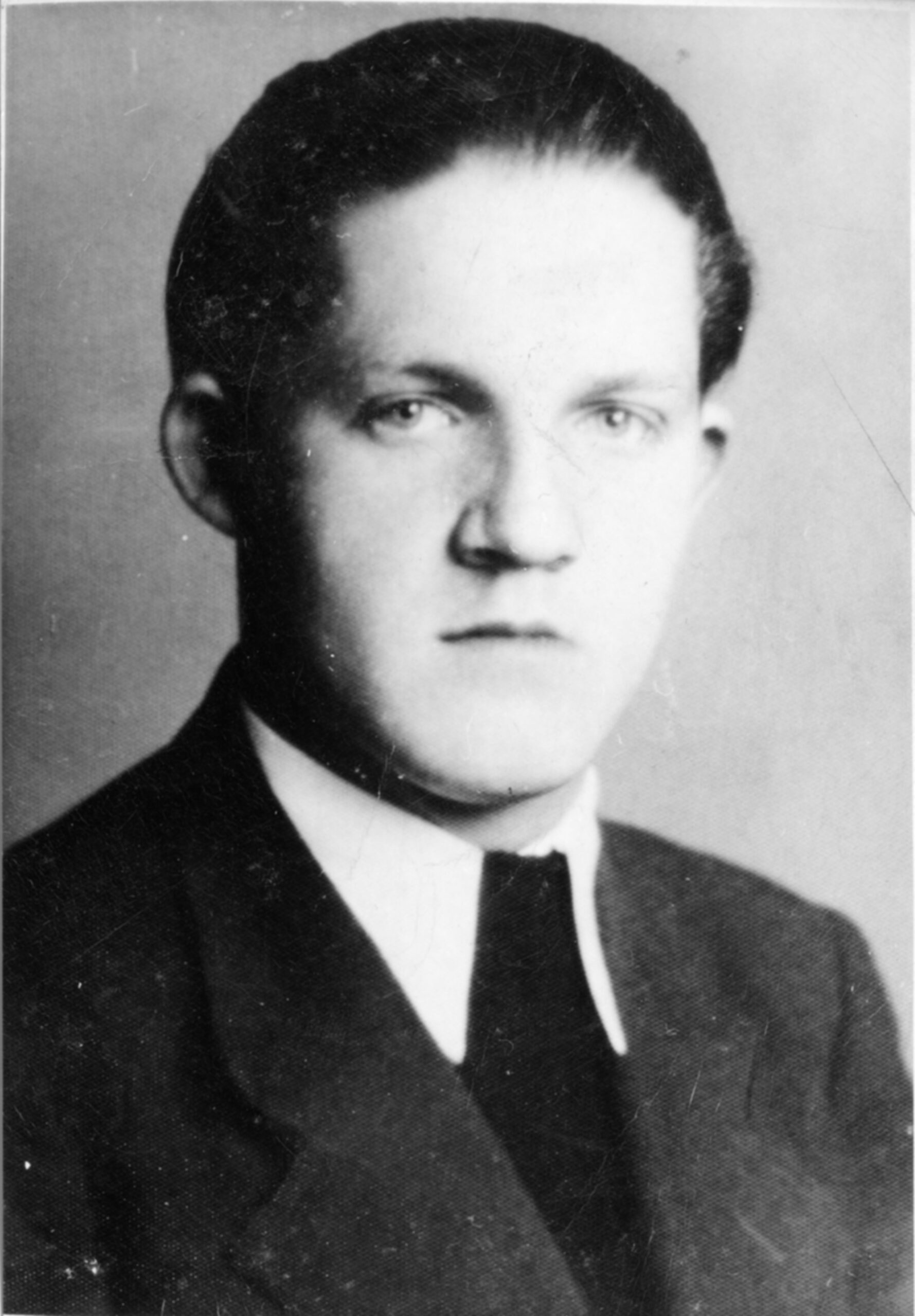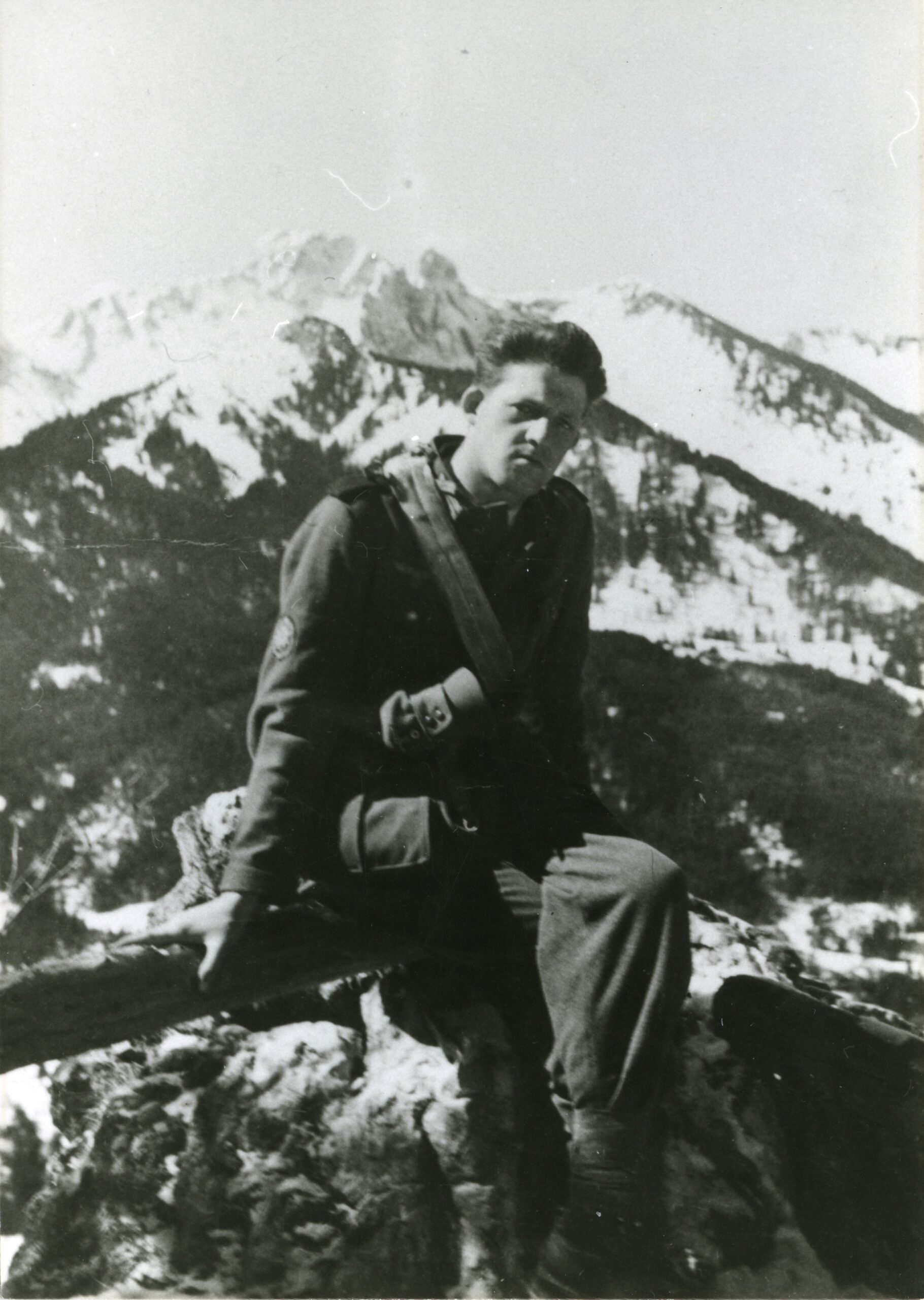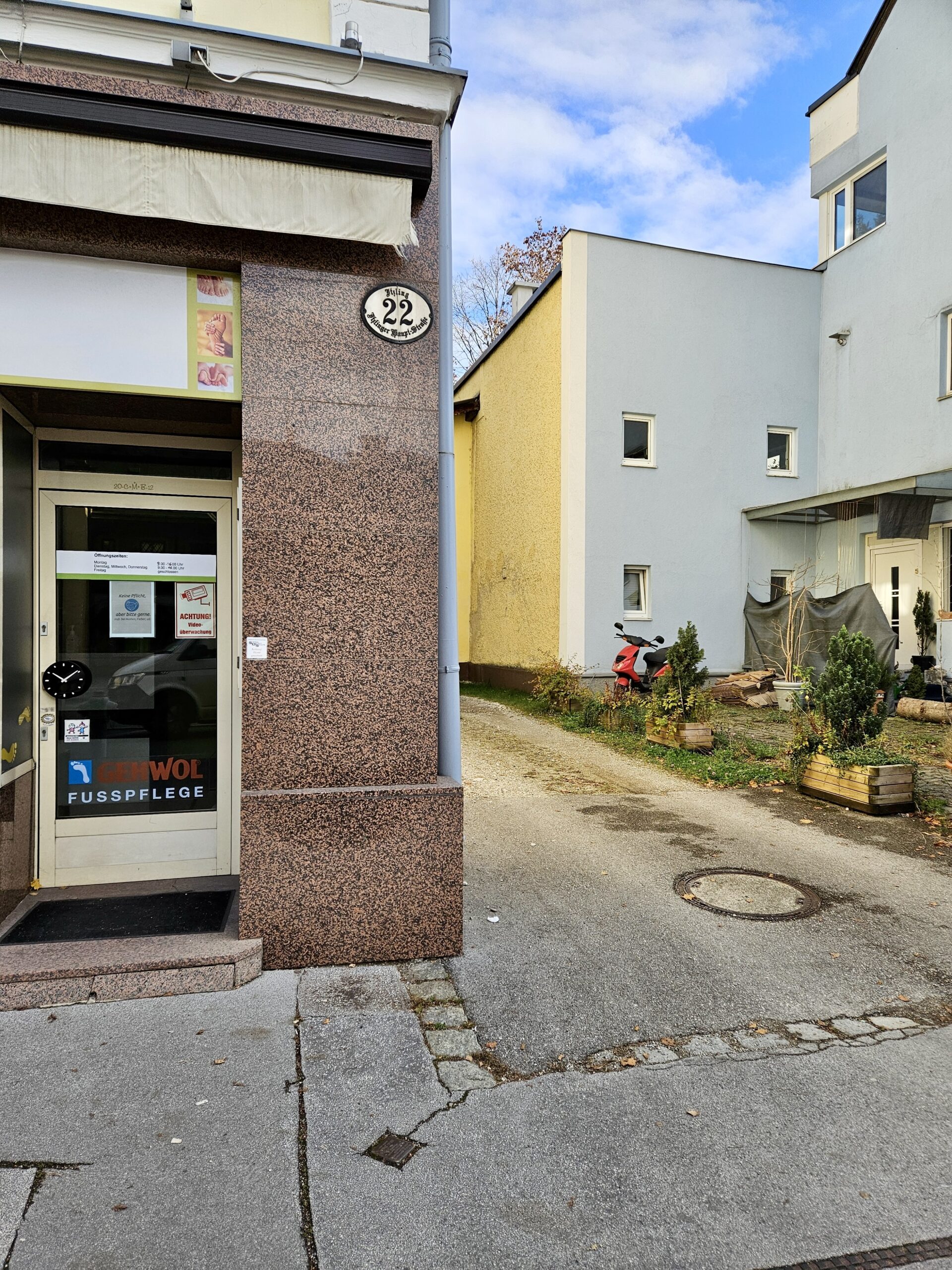Franz OFNER was born in Salzburg-Itzling on July 28 1921. He was the only child of Christine and Wilhelm Ofner. Wilhelm was a master hairdresser and a functionary of the Social Democratic Labor Party and its affiliated Gymnastic and Sport association until they were banned by the Austro-Fascist dictatorship in February 1934.
The family had converted from Catholicism to Protestantism and had local citizenship rights in the independent community of Gnigl. They lived in the Itzling neighborhood which belonged to Gnigl until it became part of Salzburg in 1935.
Franz OFNER learned hair dressing and also took on his father’s politics. After the banning of the socialist organizations in February 1934, Wilhelm gave up his political activities so he wasn’t among those persecuted by the Austrian dictatorship.
But his 14 year old son swung to the left and joined the Communist youth movement. He was still too young to join the International Brigades that fought against fascism after 1936 in the Spanish Civil War.
But the young Franz experienced the gradual surrender of Austria along with the violence of German fascism and the movement towards war that was predicted in his political education sessions.
At the urging of Franz OFNER and his friends, the Young Communists didn’t suspended their political activism in the Spring of 1939 when the Nazi-Soviet Pact went into effect, but they stepped up their activities after the invasion of the Soviet Union in June 1941.
Their ranks were thinned as members were drafted into the German army and Franz OFNER, who was the Young Communists’ first leader, had already been drafted in February 1941.
His successor, Ernst-Paul STOIBER followed him into the army in October 1941 and their friend and comrade Rosa HOFMANN took over the youth group. She saw their primary purpose as educating younger people about the nature of war and fascism. The resort to arms and sabotage were out of the question for them, as was refusing to serve in the military.
Franz OFNER´s conspiratorial activities included the entire communist resistance in the state of Salzburg and the Innviertel of Upper Austria, following the rail lines of the German Reichsbahn and the Lokalbahn.
The young Ofner led the state section of the Communist Party of Austria, including its local sections & cells and its railroaders’, womens’, and youth organizations – as did Anton REINDL who was 18 years older after Ofner was drafted.
At the beginning of 1942 the Gestapo was able to infiltrate, roll up and smash all of the socialist and communist resistance groups in Salzburg.
In order to stifle forever any organized resistance movement, over the course of 1942 the Gestapo deported seven of the wives of members of the Gnigl and Itzling Communist organization to the Auschwitz extermination camp. Only one of the seven survived.
At least 32 Communist resistance members from the city of Salzburg were killed in the Nazis’ prisons and concentration camps – the young Rosa HOFMANN, Ernst-Paul STOIBER and Franz Ofner among them.
Franz OFNER, who had been assigned to the German army medical service since February 1941, was arrested in his unit on January 16, 1942 and sent to the army prison in Salzburg’s Hellbrunnerstraße. It is worth noting that his steadfast behavior during his interrogation saved the life of his comrade Georg Hofweirer.
On October 27, 1942 Franz Ofner was sentenced to death for »conspiracy to commit treason and aiding the enemy« by the Nazis’ special »People’s Court«.
And on July 15, 1943, shortly before his 22nd birthday, he was decapitated in the Munich-Stadelheim prison.1
His parents received a joint parting letter even though they had gotten divorced by then:
Dear parents!
When this letter reaches you I will no longer be among the living. …
ever closer to the Salzburg mountains, city of my hopes, farewell my beloved Austrian homeland! …
I die believing firmly in Christ and strengthened in my last hours by the Lord’s Supper!
Franzi
His father, who had remarried after his divorce, died in 1949. His half-brother Fritz emigrated to Canada and his mother, who was left alone and who received victims’ compensation in liberated Austria, died in 1954.
In 1967 a street in Itzling was named after Franz OFNER at the initiative of the Austrian Communist Party.
1 Franz OFNER was sentenced to death along with his comrade Johann Meissnitzer on October 27, 1942, but Johann Meissnitzer wasn’t executed.
He was reprieved and assigned to Detention Unit 999 of the German army.
He survived and died in Salzburg in 1965.
Sources
- Salzburg city and state archives
Translation: Stan Nadel
Stumbling Stone
Laid 18.04.2013 at Salzburg, Itzlinger Hauptstraße 22







